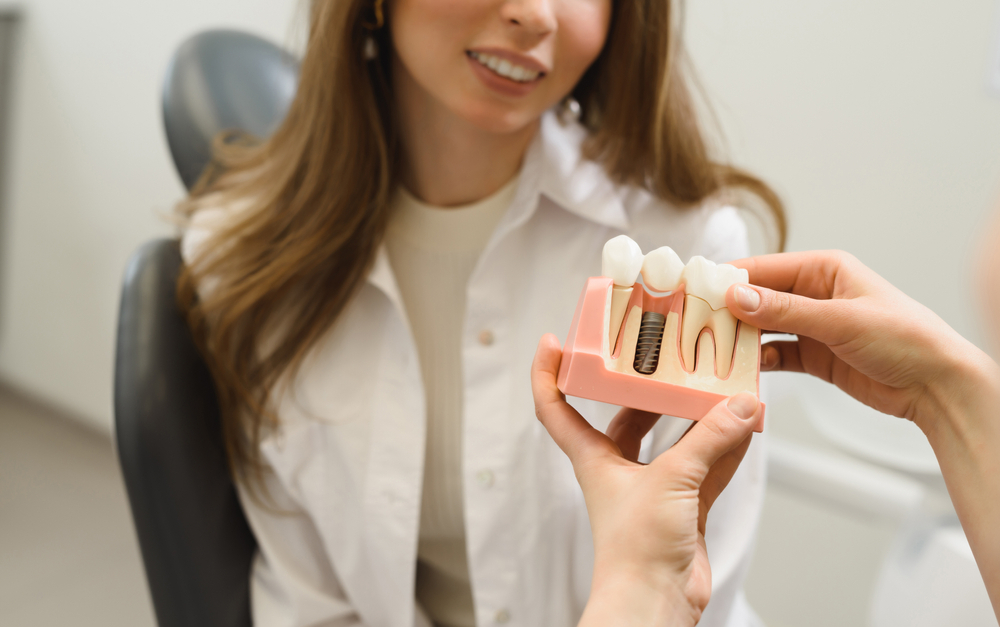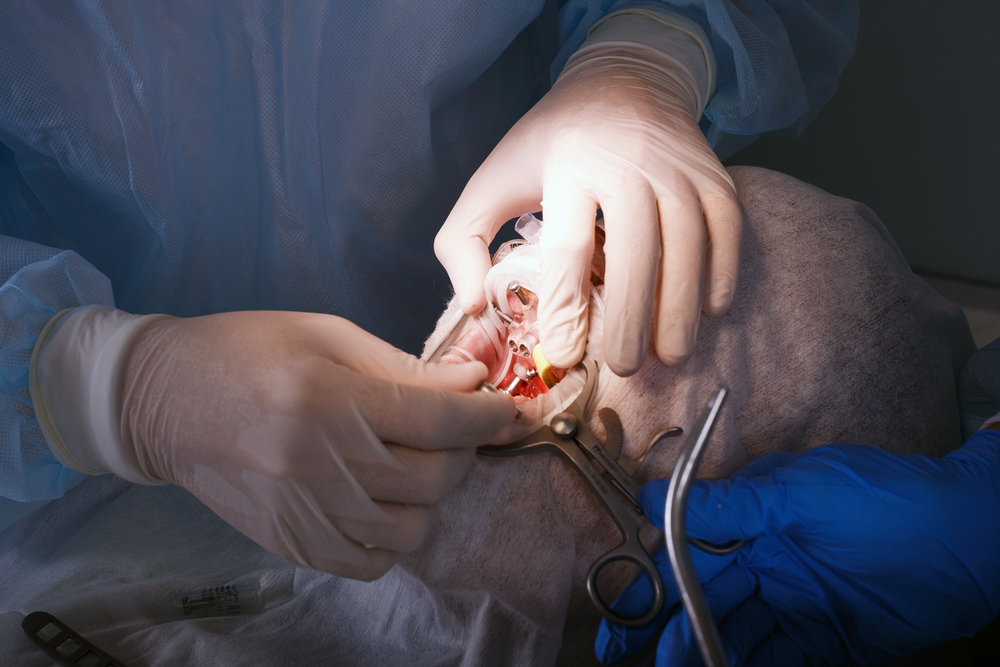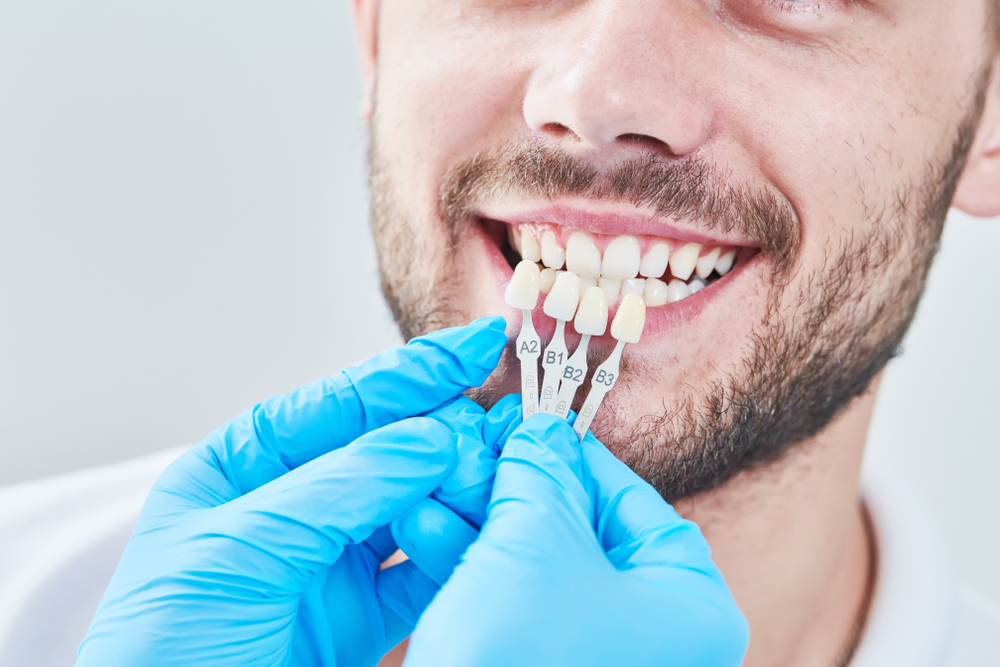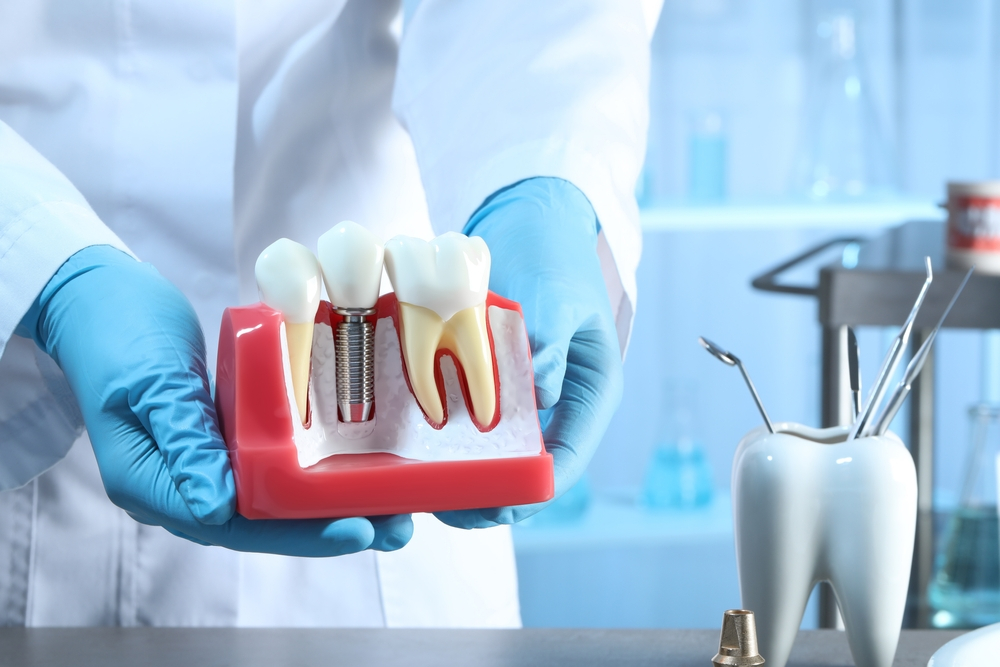
If you’re like most people, you take your teeth for granted. That is until you start to lose them. Losing even one tooth can be a significant issue, whether it’s due to decay, injury, or gum disease. Not only does it affect your appearance, but it can also impact your ability to eat and speak properly. And if you’re missing multiple teeth, the problems are even more consequential. That’s where dental implants come in. Dental implants are a permanent solution to missing teeth that can help you regain confidence and improve your quality of life.
What Are Full Mouth Dental Implants?
Full-mouth dental implants are a type of dental implant that replaces all of the teeth in either the upper or lower jaw. Dental implants are designed to look and function just like your natural teeth. They’re permanent, so you don’t have to worry about them slipping or falling out. Unlike traditional dentures, which rest on the gums, full-mouth dental implants are anchored into the jawbone. As a result, implants provide stability and comfort that dentures can’t match and help preserve the jaw’s bone structure.
Can Everyone Get Full Mouth Dental Implants?
If you are missing all of your teeth or if you have significant damage to your teeth, full-mouth dental implants may be the best option for you. Dental implants are solid and durable, giving you a natural-looking smile that can make you proud. However, considering full-mouth dental implants, you should know a few things.
First, dental implants require a significant investment. The surgery is complex and can be expensive. However, the long-term benefits of dental implants often outweigh the initial cost. Dental implants can last a lifetime with proper care. At the same time, other tooth replacement options may need to be replaced multiple times over your lifetime.
Second, not everyone is a good candidate for full-mouth dental implants. You must have enough bone in your jaw to support the implants, and your gums must be healthy enough to heal properly after surgery. However, some medical conditions may exclude someone from being a candidate. These include diabetes, cancer, and autoimmune diseases. Additionally, smokers and heavy drinkers may not be ideal candidates for this procedure due to their increased risk of infection.
If you’re considering full-mouth dental implants, talk to your dentist about whether they suit you. Your dentist will evaluate your situation to determine if dental implants are right for you.
Step-By-Step Procedure For Getting Full Mouth Dental Implants
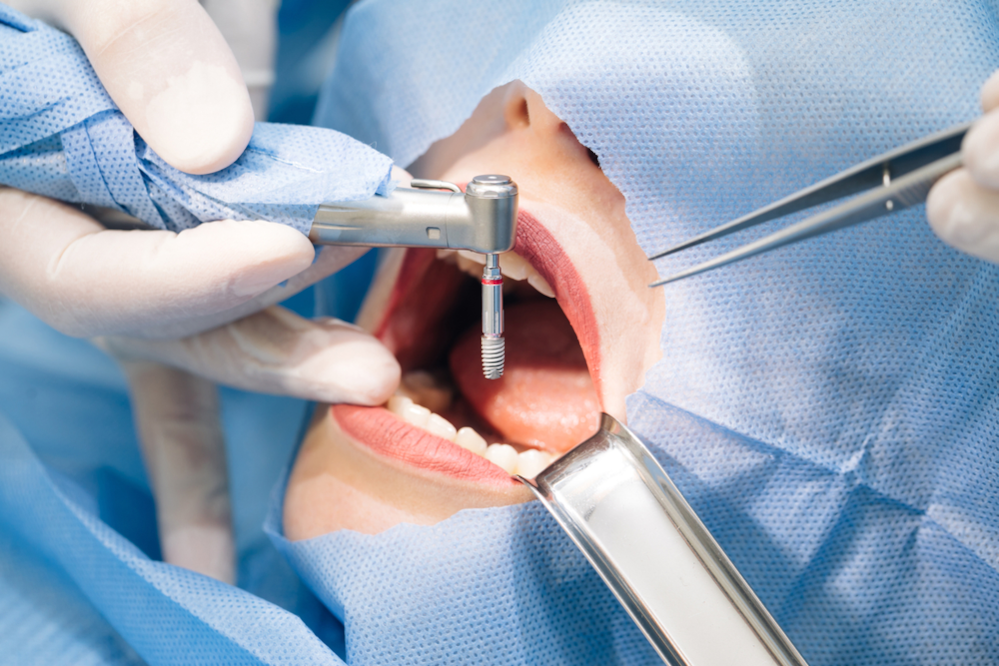
If you want full-mouth dental implants, it’s essential to understand the process and what’s involved. Here’s a step-by-step guide to help you through it.
1. Bone Grafting (If Needed): This will include a CT scan (which will evaluate the existing dentition) and possibly a bone grafting procedure (to create the proper foundation for the dental implant). Bone Graft is generally needed. For example, suppose a tooth has been missing for a long time. During the first year of missing a tooth, your jawbone begins to resorb, and bone loss accelerates to double the standard rate.
2. Implant Placement Surgery: This is a minor surgery performed under local anesthesia after bone grafting. If bone grafting is unnecessary, your surgeon will perform dental implants directly. The implants (titanium posts, screws, cylinders) will be placed into your jawbone during the surgery. Typically 6 to 8 implants are placed in the upper jaw, and 4 to 6 implants are placed in the lower jaw. The surgery usually takes about 30min to an hour for each implant to be placed.
3. Attaching Abutments to implants: Once the implant placement surgery is healed, you will need to have the abutment placed. Placing the abutment is a simple outpatient procedure that takes about 30 minutes to complete. The abutment will be placed on top of the implant and then secured during this procedure.
4. Placing Prosthetic Tooth (Crown/Bridge): After placing the abutment, you will need to have your new artificial teeth made. This process usually takes about two weeks to complete. Once your new artificial teeth (crowns/bridges) are ready, they will be securely attached to the abutment. Again, depending on your case, this can be done in one or two stages. The whole procedure of full-mouth dental implants usually takes 5 to 8 months.
Congratulation! You have successfully implanted full-mouth dental implants. Now you need to care for your new teeth just like your natural teeth. So, brush and floss them daily and visit your dentist for regular checkups and cleanings. With proper care, your new teeth should last a lifetime!
The Benefits Of Dental Implants

Dental implants are quickly becoming the best way to replace missing teeth. They offer several benefits over other methods, such as dentures or bridges. Here are just a few of the reasons why dental implants are the best way to replace missing teeth:
• Dental implants look and function just like your natural teeth. This means you can eat and speak without worrying that your teeth will slip or fall out, allowing you to smile confidently!
• Dental implants are a permanent solution. Unlike dentures or bridges, which can eventually need to be replaced, dental implants are designed to last a lifetime.
• Dental implants are much easier to care for than dentures or bridges and don’t require special cleaning solutions or adhesives.
• Dental implants can help preserve your jawbone and prevent further tooth loss. When you lose teeth, the bone in your jaw begins to deteriorate. Dental implants help to stimulate the bone and prevent this from happening.
• Dental implants will not decay or develop Cavities.
• Dental implants are a highly effective treatment for tooth loss, with a success rate of over 95%.
If you’re considering dental implants to replace your missing teeth, consult a qualified implant dentist to see if you’re a good candidate for the procedure.
The Cost of full-mouth Dental Implants
If you are considering full-mouth dental implants, one of the first things you may be wondering about is the cost. While the cost of dental implants varies depending on the individual case, it can cost anywhere from $7,000 to $68,000 overall. In the USA, the prices can be even higher. Traveling abroad can help you significantly reduce these costs.
While the cost of full-mouth dental implants can be high, having a complete set of teeth is essential for your health and appearance. If you are considering dental implants, talk to your dentist; they’ll likely tell you how much it costs in your case.
Start Your Tooth Trek Today!
Join the many other people from the USA and Canada traveling abroad for dental care. They have learned this secret about getting affordable dental care and having an incredible time.
Reach out for a free consultation with our network of dentists.

